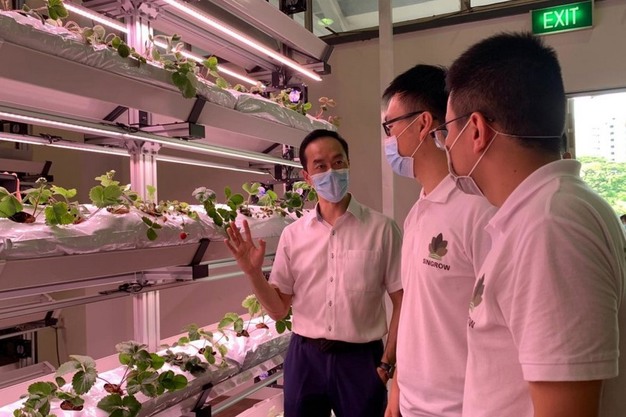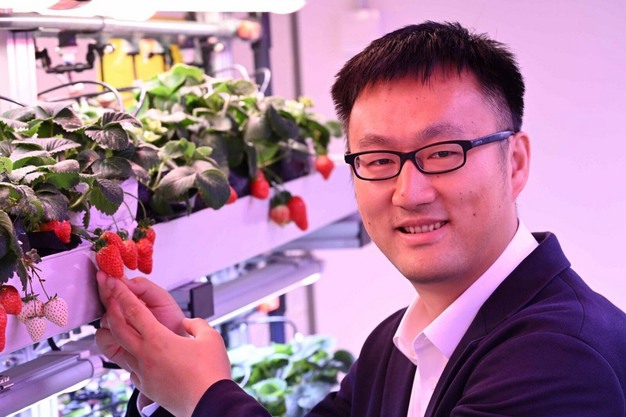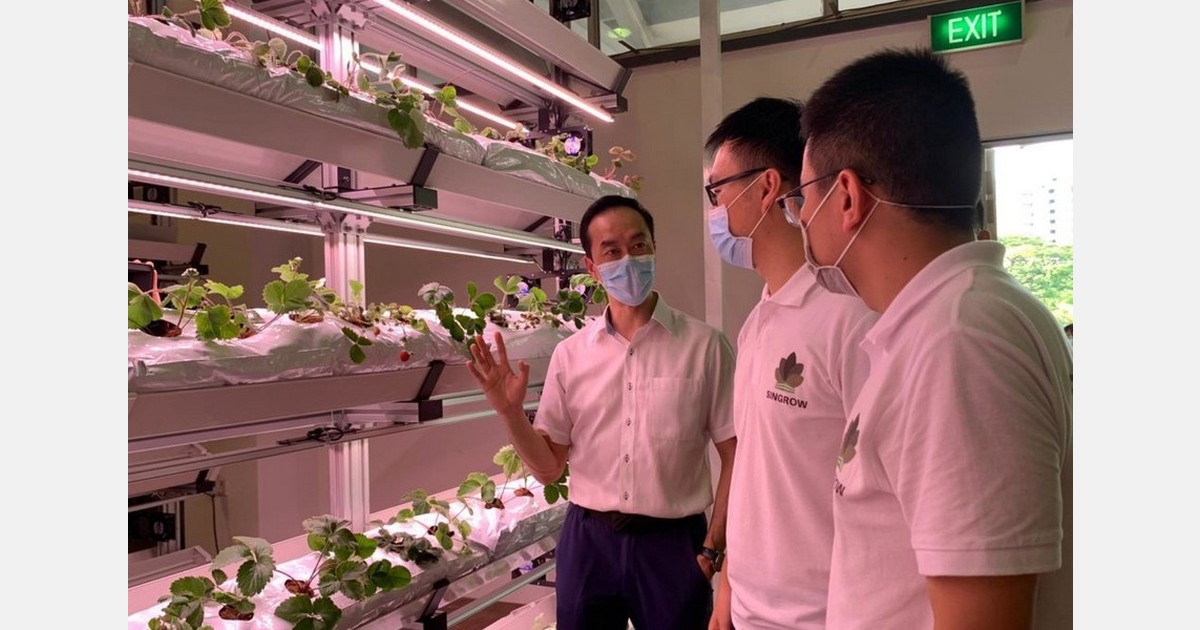Plant genomics and precision agriculture company Singrow has raised $4.5 million in Series A to bring its seedlings, vertical farming, and plant genetics business to new geographies in and beyond Asia.
Investors Finc Pte. Ltd., Cyanhill Capital, Pasudeco, and Eastern Wind International participated in the round along with existing investors Ritz Venture Partners and AgFunder.
In addition to helping build out Singrow’s three main lines of business—seedlings, vertical farming, and a reverse genetics breeding platform—the new funding will also fuel the company’s expansion beyond its current markets such as Singapore (where it’s headquartered) and China.
Founder and CEO Dr Bao Shengjie tells AgFunderNews that one of Singrow’s biggest milestones over the last couple years has been its evolution from a single-market business serving only Singapore to a regional one that reaches other areas of Southeast Asia as well as China.
In 2023, the company began its expansion to China, where it has also built a propagation facility for its strawberry seedlings. “With this capacity we are for the first time able to supply the market [with] new strawberry variants,” he says.
Currently, Singrow’s largest seedling production comes from its Guangzhou farm in southern China, and it operates another facility in the northern part of that country.
“With such capacity build, we are not only supplying the China domestic market, we are further exporting the strawberries into Singapore, Indonesia, and Thailand. So it’s [turned] into a regional business.”
The company has now trial-planted heat-resistant sweet strawberries—what it calls “climate resilient strawberries”—in Singapore, China, Vietnam, Indonesia, Malaysia, and Thailand.
The berries are derived from Northeast Asian cultivators and are claimed to be resistant to the high temperatures of summer, enabling production not just around the year but also in regions where strawberry production was previously unheard of.
Last year, Singrow also unveiled technology that compresses the traditional timeframe for saffron growing and harvesting.
“We see their platform at an inflection point—ready to scale globally and capture significant value in agritech,” Angela Tay, senior associate at AgFunder, tells AgFunderNews.
“In the five years since AgFunder first backed Singrow, it has more than fulfilled its bold promise. As investors re-upping in this round, we couldn’t be more excited by its trajectory: Singrow has translated its proprietary crop breeding and controlled-environment technologies into real commercial breakthroughs.”
 © Singrow
© Singrow
Singrow: Primarily a seed company
Singrow was founded in 2019—peak time for vertical farming mania, especially around growing leafy greens in warehouse-sized facilities.
But Singrow’s aim wasn’t to become just another indoor ag grower.
“Singrow is primarily a seed company,” says Shengjie. “Our key know-how and technologies are from the crop breeding and precision farming sectors.”
In addition to its seedlings, the company has devoted much effort to its reverse genetics breeding platform that can provide partnering companies with breeding targets for a variety of traits.
Singrow used vertical farming initially because it was the only way to showcase its varieties and technology, Singapore as a whole being extremely short on available land for traditional farming.
Now its vertical farming setup is a key part of the Singrow business, though Shengjie says the company won’t be growing leafy greens or herbs inside those farms. “That’s a dead end in the current market situation,” he says, referring to the ongoing correction happening in vertical farming the last couple of years.
“We focus only on the higher-value crops like strawberries. We have also been working on traditional Chinese medicine, herbs and plants with higher market value.”
 © Singrow
© Singrow
Houston, we have a circular system
Add mushrooms to the list now, too. According to Shengjie, Singrow has secured the rights to build a bigger facility in Singapore he says will be “one of the biggest circular agricultural plant factories in the market.”
It will grow both strawberries and white-button mushrooms.
“We want to better utilize the so-called ‘waste air’ from mushroom production,” he says.
Mushrooms are like humans, taking in oxygen and breathing out carbon dioxide. In order to maintain the ambient air quality in the mushroom farm, that CO2 has to be pumped out in a process generally known as a fresh air exchange.
As it happens, Singrow’s strawberries need extra CO2 to boost their photosynthesis reaction, says Shengjie, which means the “waste air” can become free CO2 fertilizer and air con for the company’s strawberry production.
“At the same time, we help the mushroom side lower its carbon emissions,” he adds.
Singrow is building the first of these farms right now in Singapore slated to be ready by the end of 2026. Before that, however, the company is aiming to open another mushroom-strawberry facility in Houston, Texas.
Opening a US facility will put Singrow into direct competition with Oishii, one of the most well-known companies in the US when it comes to vertically grown strawberries. While applauding that company’s work, Shengjie also suggests that, thanks to a combination of less intense climate control needs and the circular nature of the setup, Singrow will be able to achieve operational costs about 60% lower than those of Oishii.
Singrow also plans to take this circular mushroom-strawberry concept to Vietnam and China.
The company is currently gearing up to raise a Series B round of funding, which Shengjie says could see its first close in December of this year.
Beyond fast-tracking the development of current projects, Singrow would use the Series B funds to break into additional new markets including Saudi Arabia and Brunei.
Source: AFN

